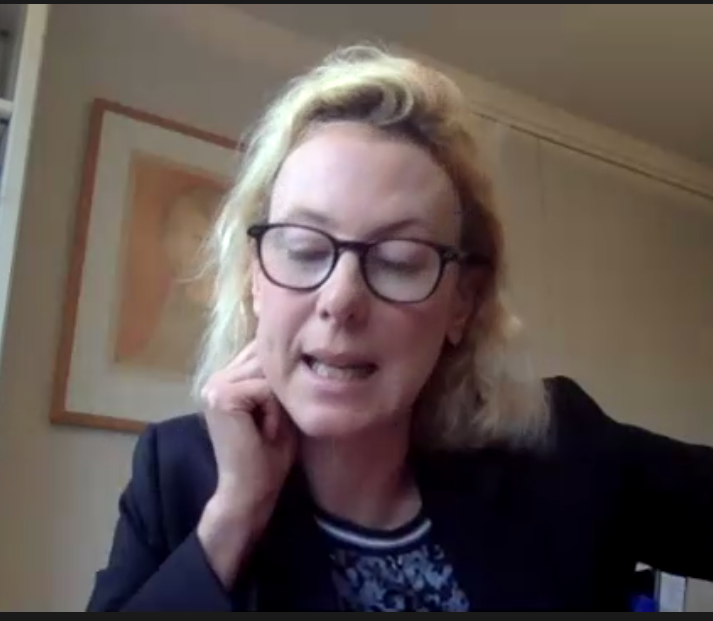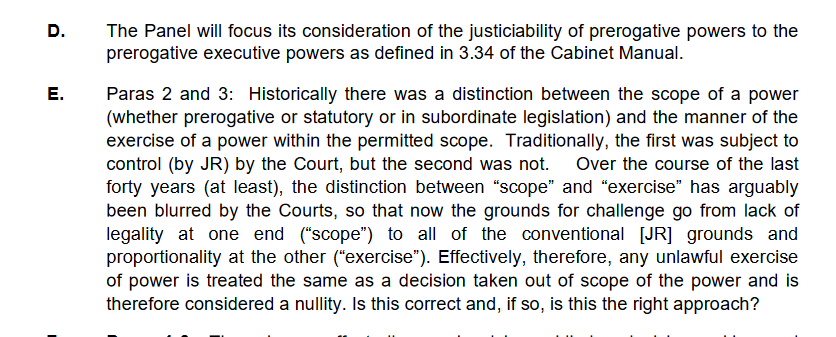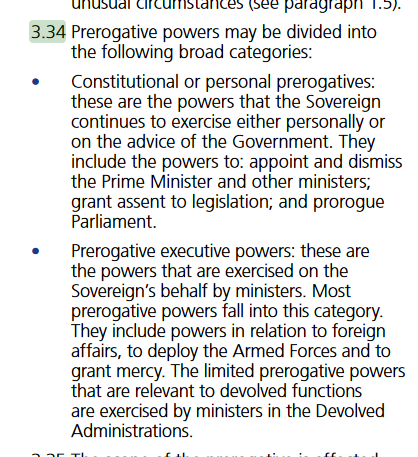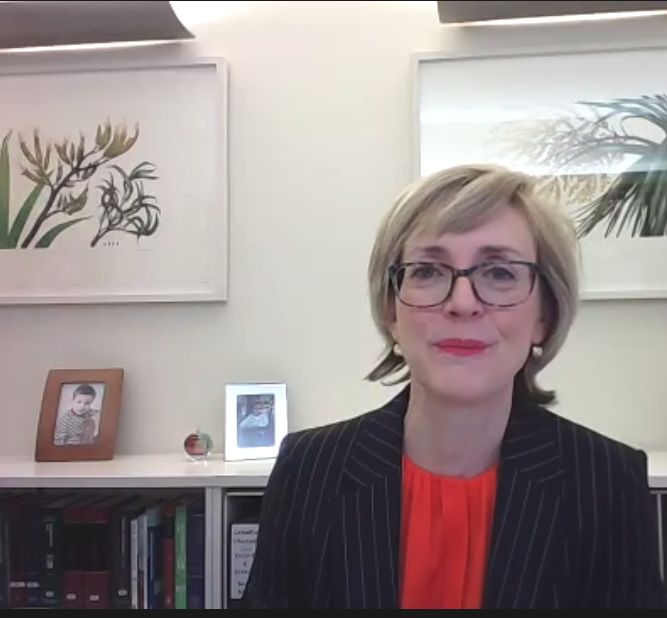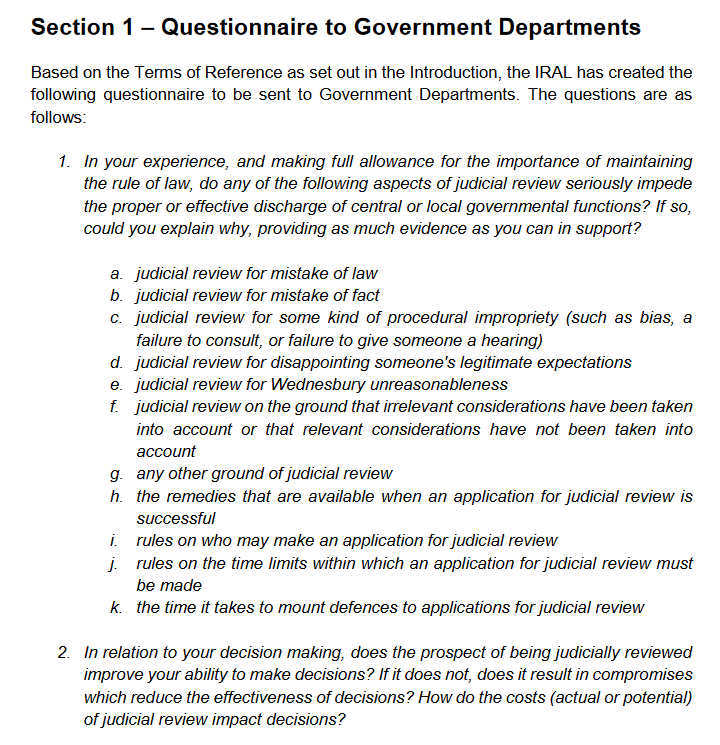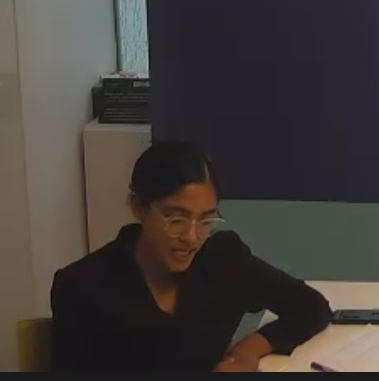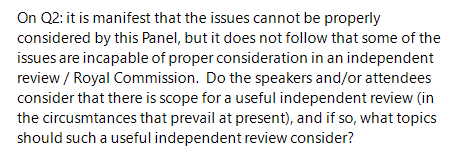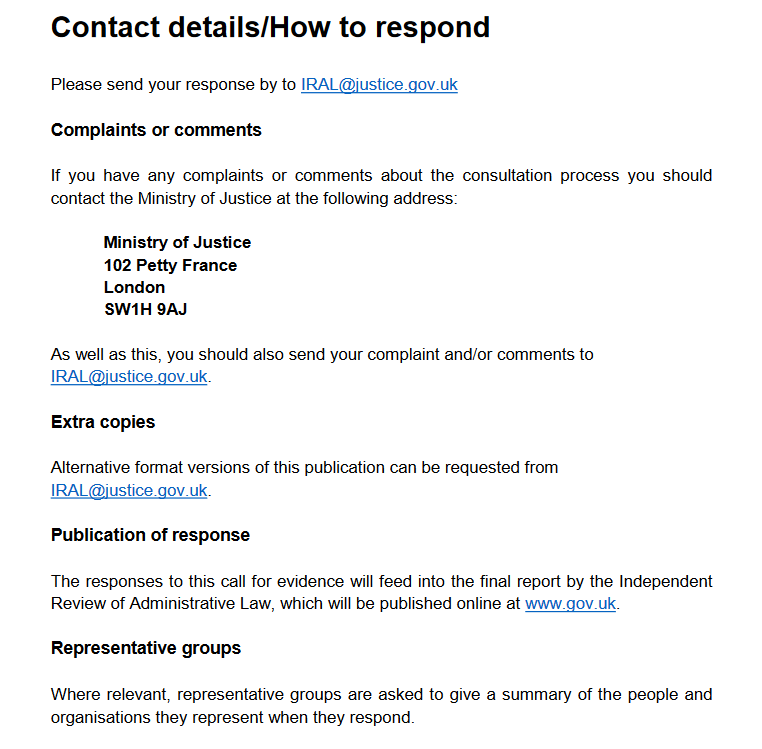Joining other "activist lawyers" or "lawyers" as @thebrieftweet calls them for the @BlackstoneChbrs webinar on judicial review reform this morning - 500 of us are "here" and raring to go! We hope to identify the wisdom of public law crowds...
The terms of reference for the so-called Independent Review of Administrative Law are here https://assets.publishing.service.gov.uk/government/uploads/system/uploads/attachment_data/file/915624/independent-review-admin-law-terms-of-reference.pdf,">https://assets.publishing.service.gov.uk/governmen... but do they wrongly assume that problems are the fault of the legal system? What factors are driving quantitative/qualitative changes in judicial reviews brought?
Are there problems with how executive policy, rules and decisions are being made? Do different problems manifest for different types of instrument? If a healthier balance between JR and executive decision-making is required, how could the latter change to achieve this?
Someone at the seminar may just have referred to politicians as "ambitious Svengalis"
There is an "epidemic" of statutory instruments - ironically the pandemic itself, as well as Brexit, is producing many of these.
The making of these at speed is displacing debate into the Courts which should take place in Parliament - @thebrieftweet calls this the & #39;toothpaste effect& #39;. His teeth look very nice by the way.
We are now over to @TomRHickman who is speaking about the Justice/All Souls review and Carol Harlow& #39;s review of it https://www.jstor.org/stable/764381?seq=1">https://www.jstor.org/stable/76... entitled & #39;Don Quixote to the Rescue?& #39; - she suggests the terms of reference of that review were the & #39;seeds& #39; of its own & #39;disaster& #39;
Here& #39;s Tom looking wise and thoughtful
There have been various further discussions including the Law Commission http://www.lawcom.gov.uk/app/uploads/2015/03/Monetary_Remedies_Paper.pdf">https://www.lawcom.gov.uk/app/uploa... on monetary remedies in JR (not implemented) and the Jackson report on costs which led to the Aarhus regime for environmental JR
Now we are hearing from Charlotte Kilroy QC, pictured here looking brainy and thoughtful - she is considering paras 2 and 3 of terms of reference (see next tweet)
Here are the paras we are considering - they relate to (a) justiciability and (b) the grounds for JR (and associated remedies)
And here& #39;s the bit of the Cabinet Manual being referred to on the different types of prerogative powers
It& #39;s a very striking feature of these terms of reference that they are not only asking the Panel to address incredibly complex Qs of public constitutional law, but also Qs which have either recently been considered & decided by the Supreme Court or are shortly to be addressed
So the Panel is being asked to decide for example if the eleven judge Supreme Court was correct in Miller 2
(Sorry, slight pause in tweeting there - resuming now)
As long ago as 1969 the Law Commission opined that an inquiry by a Royal Commission or committee of comparable status would be needed in order to reform the law in this area.
Here& #39;s the wonderful Catherine Callaghan speaking about the Call for Evidence https://assets.publishing.service.gov.uk/government/uploads/system/uploads/attachment_data/file/915905/IRAL-call-for-evidence.pdf">https://assets.publishing.service.gov.uk/governmen...
The call for evidence contains a questionnaire to government departments - which seems designed to gather evidence that JR hampers decision making - but it does not seek evidence from other public law decision-makers let alone from claimants
A number of bodies are urgently preparing responses to this - including the Admin Law Bar Assoc. There is a tricky conflict here as the Chair of ALBA is on the Review Panel. ALBA has a working group of barristers, solicitors and one academic. In addition Justice is responding.
The call for evidence suggests that compliance with the Defendant& #39;s duty of candour is a burden to Govt. The public law Bar is very concerned about attempts to restrict this important duty - public authorities shouldn& #39;t be seeking to win cases at all costs but to assist the court
In principle there should be no difficulty with a government department being able to locate and disclose documents underlying its decision. If there *is* a problem then data collection and record-keeping should be improved rather than the duty of candour restricted.
Catherine challenges the idea that compliance with the duty of candour imposes an unduly onerous burden on defendants in JR claims, and invites Govt lawyers to express their views.
We are now over to my brilliant colleague Gayatri Sarathy ( https://www.blackstonechambers.com/barristers/gayatri-sarathy/)">https://www.blackstonechambers.com/barrister... to talk about the real issues facing JR right now
Recent changes to JR include the introduction of the & #39;no substantial difference& #39; test which Blake J has said risks increasing the length and complexity of JR proceedings - the court being inevitably drawn into speculation about the decision of the public authority.
The test is written about by @TomRHickman and Ben Jaffey here: "It is clear that the concern is not to make judicial review more effective or more streamlined, but a means of making it more difficult to pursue" https://ukconstitutionallaw.org/2014/02/06/ben-jaffey-and-tom-hickman-loading-the-dice-in-judicial-review-the-criminal-justice-and-courts-bill-2014/">https://ukconstitutionallaw.org/2014/02/0...
Gigi suggests that there are four areas worthy of examination and/or review - first, the role of expert evidence in judicial review - see the recent Law Society case where a rationality argument failed because of a contradiction in expert evidence.
Secondly, the admissibility of fresh evidence in JR cases - is a Ladd v Marshall approach appropriate here, particularly in cases where legality needs to be determined on an up-to-date basis?
Thirdly, should JR funding be regulated in some way so as to avoid, for example, a situation where tens of thousands of pounds can be donated to a group believing Covid-19 is a & #39;hoax& #39; in order to bring a JR challenge?
Fourthly, how do we improve the process for scrutiny of statutory instruments particularly in current circumstances of Covid and Brexit?
Our totally unscientific straw poll suggests that only 14% of Defendant lawyers consider the duty of candour is an undue burden on public bodies in JR.
The Panel say there is an interesting question as to whether there is any need for review of substantive JR at all, the Law Commission having recently concluded that there is not. As to procedural issues, there have been recent forays into this area and they need to bed down.
Another question is whether prerogative powers should be set out in statute with appropriate limits on the Executive, which would answer some of the justiciability questions.
But there is currently no proper basis for (or need for) any review of the substantive law of judicial review. Another concern is the lack of proper suggestions for reform, the current review being open-ended.
Well, that wraps up my tweeting for this morning - many thanks to all who came and contributed and please, if you have any public law experience and expertise (whether as barrister, solicitor, or client) do respond to the call for evidence - by 19 October 2020 which is soon!
@OlliePersey re our discussion this morning, assume you saw this thread?

 Read on Twitter
Read on Twitter

